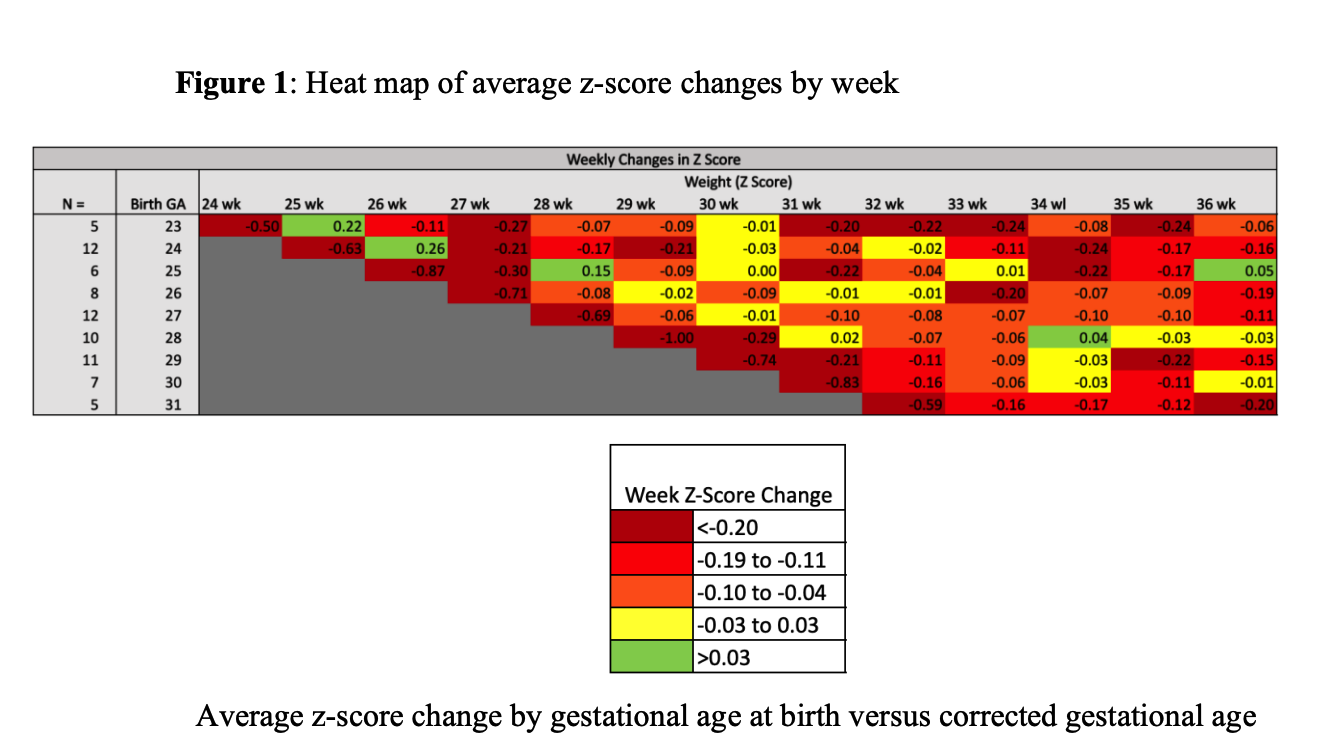Neonatal General
Neonatal General 4: GI-Nutrition-Growth
684 - Extrauterine Growth Restriction in Neonates Born at a New Jersey Level III Neonatal Intensive Care Unit
Publication Number: 684.232

Kelsey Murray, BS (she/her/hers)
Medical Student
Cooper Medical School of Rowan University
Philadelphia, Pennsylvania, United States
Presenting Author(s)
Background:
Extrauterine growth restriction (EUGR)refers to inadequate growth of the neonate during hospitalization. EUGR affects many preterm infants and leads to significant long term health effects including neurodevelopmental delay, immune system dysfunction, and increased risk for adult diseases. The primary aim of this study was to determine the rate and timing of EUGR in The Children’s Regional Hospital Neonatal Intensive Care Unit (NICU).
Objective: The primary aim of this study was to determine the rate and timing of EUGR in The Children’s Regional Hospital Neonatal Intensive Care Unit (NICU).
Design/Methods: We conducted a retrospective chart review of all infants born at The Children’s Regional Hospital Level III NICU from June 2017 to June 2022. Neonates born after 32 weeks gestational age (GA) and/or born small for GA (SGA) were excluded from the review. Data gathered included demographic characteristics, growth parameters, dietary intake, and hospital length of stay. Growth percentiles and z-scores were calculated using the Fenton 2013 growth curve for preterm infants. We defined EUGR as a longitudinal decrease in weight z-score (difference ≤-1.00) between birth and either discharge or 36 weeks (closeout date) .The onset of EUGR was analyzed using a heat map of z-score changes.
Results: A total of 267 charts were reviewed with 57% male. The baseline rate of EUGR in neonates born under 32 weeks in our hospital was 28.5% (76/267) between June 2017 and June 2022. Overall in this cohort, EUGR occurred most often at 31-34 weeks corrected GA (cGA). Notably, EUGR occurred more frequently during the first four weeks of life in neonates born after 28 weeks GA, with 55% not showing any positive z-score changes within the first four weeks of life. The rate of EUGR in neonates born before 28 weeks GA was 36.1%, while the rate of EUGR in neonates born between 28-32 weeks GA was 21.9%. The average z-score change in the EUGR cohort at discharge or closeout was -1.42.
Conclusion(s): The timing of EUGR observed in our study demonstrates that growth failure can occur early in the neonate’s NICU stay, at times within the first few weeks of life. Based on this data, we will implement a QI project aimed at addressing growth failure between 31-34 weeks cGA. Additionally, we hope to improve early weight gain in neonates born after 28 weeks. Future research will evaluate neurodevelopmental outcomes in our EUGR population.
.png)
